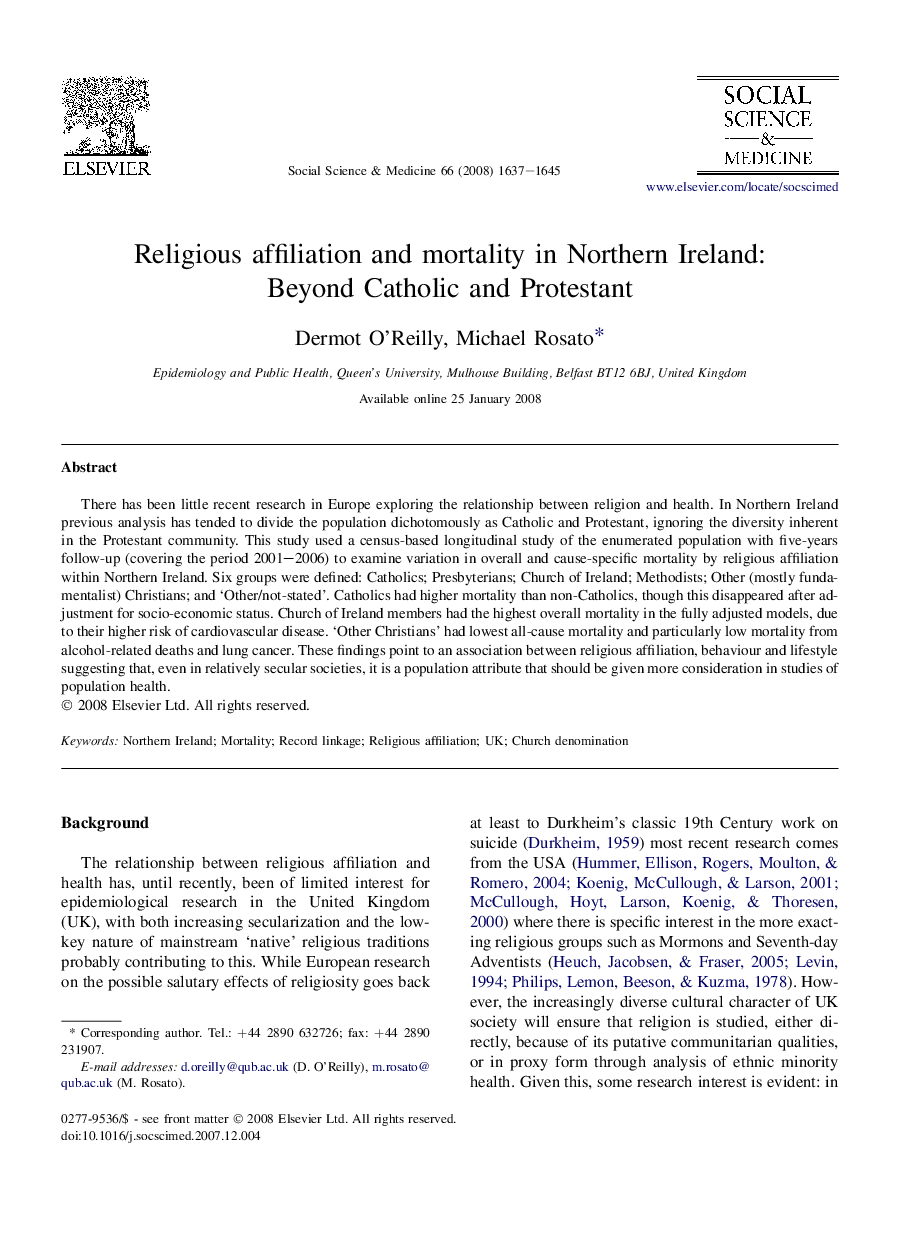| Article ID | Journal | Published Year | Pages | File Type |
|---|---|---|---|---|
| 954639 | Social Science & Medicine | 2008 | 9 Pages |
There has been little recent research in Europe exploring the relationship between religion and health. In Northern Ireland previous analysis has tended to divide the population dichotomously as Catholic and Protestant, ignoring the diversity inherent in the Protestant community. This study used a census-based longitudinal study of the enumerated population with five-years follow-up (covering the period 2001–2006) to examine variation in overall and cause-specific mortality by religious affiliation within Northern Ireland. Six groups were defined: Catholics; Presbyterians; Church of Ireland; Methodists; Other (mostly fundamentalist) Christians; and ‘Other/not-stated’. Catholics had higher mortality than non-Catholics, though this disappeared after adjustment for socio-economic status. Church of Ireland members had the highest overall mortality in the fully adjusted models, due to their higher risk of cardiovascular disease. ‘Other Christians’ had lowest all-cause mortality and particularly low mortality from alcohol-related deaths and lung cancer. These findings point to an association between religious affiliation, behaviour and lifestyle suggesting that, even in relatively secular societies, it is a population attribute that should be given more consideration in studies of population health.
